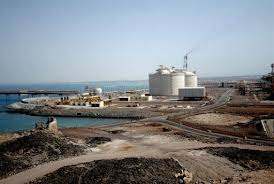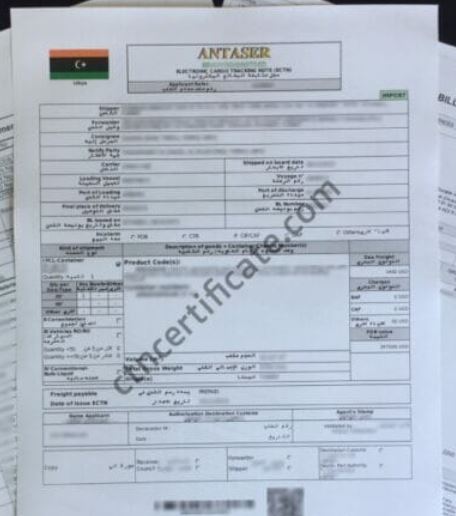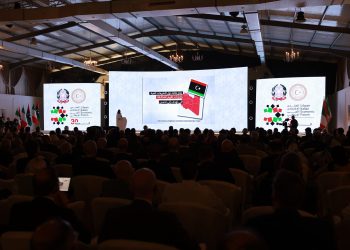By John Hamilton.

London, 15 April 2015:
The internationally-recognised government’s insistence that crude oil purchases negotiated with the traditional headquarters of National Oil . . .[restrict]Corporation in Tripoli are illegal, and its attempts to establish its own credible Cyrenaica-based NOC management have so far fallen on deaf ears.
The engineers responsible for day-to-day production are unwilling to transfer their allegiance from the corporation’s previous chairman Mustafa Sanalla, despite his supposed dismissal last November. Established international buyers of Libyan crude also see no reason to switch.
Prime Minister Abdullah Al-Thinni’s amplified rhetoric is regarded as a symptom of his administration’s growing desperation for the cash that it needs, not only for running expenses, but also to purchase the weapons with which it hopes to settle the civil war. Rumoured swap deals with Russian or Gulf-based trading companies may be its only hope.
For the third time in four months, Thinni has warned the international oil market against dealing with Tripoli-based NOC officials under Sanalla’s authority.
The first warning accompanied the appointment of Mabrouk Busief as the new head of NOC in December, and the second was a 17 March decree stating that contracts agreed with Tripoli would be “considered invalid” and violators would face legal proceedings.
On 2 April, the Beida-based government issued a further decree authorising the Busief’s NOC management to open a new bank account in the UAE, to export crude and oil products, to swap crude for fuel, to negotiate both with currently contracted parties and new counterparties and to open representative offices in Germany, Great Britain and the USA.
Two days later Thinni issued a statement warning all national and foreign agencies and individuals of “the illegality of dealing with National Oil Corporation based in Tripoli” whose senior management “represent only themselves”.
He called for “the subordination of all assets and companies and employees” to the new NOC, including those in western areas such as Zawiya refinery and the Mellitah oil and gas terminal, which it said were under the control of outlaw militias.
Both NOC’s own personnel and its overseas commercial counterparties have so far chosen to disregard these warnings. This decision has been made easier by the fact that no one representing Busief or his side of the corporation has made any attempt to formally contact market players to request that they change their current arrangements.
“This time round nobody who works for or claims to work for the new NOC has contacted us at all. They know us, so they could”, said one experienced buyer of Libyan crude. “This threat by the other organisation, we have to ignore it and work the way that we have worked for ever,” said a second oil trading executive.
A third commented “I don’t think these guys are going very far. Quite evidently it is not in the interests of the country and there is not much international support. International oil companies are giving them quite a wide berth… if you got a call from them, you would send it to voicemail.” He added that “there are real dangers in not dealing with Sanalla, because his NOC is the repository of all the Libyan oil contracts”.
The Sanalla-led NOC’s continued control over production and exports across the entire country is evident from the fact that production in early April has remained at approximately 600,000 b/d, with cargoes leaving from terminals under the physical control of either side in the conflict.
According to one former NOC official, Sanalla – despite having to operate from a headquarters under the control of the General National Congress and the Libya Dawn militias is “neutral”.
“He is doing the best he can under the circumstances”. The same source said that Busief – who is based in Ras Lanuf – had failed to recruit any Libyans with sufficient experience to establish a marketing department of his own.
“They don’t have the know-how, or the accumulated data on clients and trading history to do the marketing,” he said.
A Libyan with experience of the oil market concurred, noting “I think it will fall over and collapse”. On 4 April, Buseief told Bloomberg that he had a “management and marketing team” which was “ready to deal with our existing clients and partners,” and that they would “start contacting them today”.
There is little to show that this has happened aside from unverified rumours in the market suggesting that the Thinni administration may be considering swap deals under which crude would be exchanged either for fuel or munitions.
Companies mentioned in this context include the Dubai-government owned Emirates National Oil Company (Enoc), Dubai-based Al Ghurair Investment (which is currently in dispute with NOC over their failed partnership in the Ras Lanuf Oil Refinery), Riyadh-based Petrosaudi and Russia’s Rosneft.
None of these companies could be reached for comment. The Libyan oil market source recognised the “frustration” felt by the Beida-based government saying “they will try and do whatever they can”, but warned “in theory these swaps are possible. In practice I would question their ability to place the crude with anyone willing to buy, on the basis of the doubts over the legitimacy of the crude”.
He added that any financial transaction would also need the approval of the United States otherwise “the money could be stopped pretty easily by the global financial system”.
If the eastern NOC were to arrange its own exports, this would be possible only from Arabian Gulf Oil Company (Agoco)’s Hariga terminal adjacent to the town of Tobruk, where the House of Representatives is located.
According to the buyer of Libyan crude “the relevant parts of Agoco and the tribes around Jalu are ready to take instructions from them and the workers at Hariga will, if they pay them”. Agoco’s maximum production capacity from the Sarir and Messla fields is about 400,000 b/d but according to the former NOC official it can now produce only between 280-310,000 b/d.
Both Thinni and Busief have told Libyan and international media that production could restart from Sider and Ras Lanuf, where NOC declared force majeure in December following attacks by Libya Dawn militias. But this is unlikely. Although groups loyal to the rival governments have declared a truce in the oil crescent area, a large number of fields remain shut and continue to be threatened by Islamic State fighters who killed guards and kidnapped foreign workers from a field in February.
John Hamilton is a contributing editor at African Energy, where this piece is also published.










